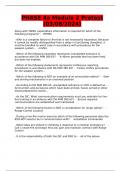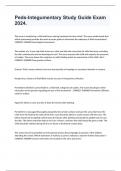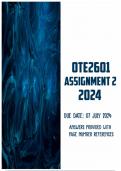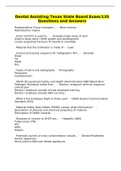Contract
SEMESTER 1
DISTRIBUTION OF THIS DOCUMENT IS
ILLEGAL
Contents
- Notes (32 pages)
- Case summaries (28 pages)
- Link to quizlet (142 flashcards)
Contract: the basics
Relevant cases: Mckenna; Barkhuizen; Bredenkamp; Botha; Beadica; Pridwin
- Agreement 2 or more persons intending legal obligation
- Agreement complies with all other requirements which the law sets
- Key thing distinguishes contract from everything else is that a contract is an obligation
creating agreement
- Main requirement for valid contract is consensus
- An obligation is composed of a right and a duty
- ‘meeting of the minds’ = true consensus
- point of departure when testing the existence of a contract: POD is the will theory but in
cases of dissensus, the shortcomings of that theory are corrected by an application of
the reliance theory (illustrated in Steyn)
- onus of proving an existence of a contract rests on the person who alleges that the
contract exists
Requirements for a Valid Contract
- consensus
- Capacity
, Kaya Borkowski
- Formalities
- Legality
- Possibility
- Certainty (things that you are contracting must be certain or ascertainable)
- obligations don’t always need to be reciprocal, they can be multilateral (say the
agreement is that one person agrees to refrain from doing something, the other party
does not necessarily need to do or not do something)
Theories of Contract
- need to be common understanding of the material aspects of the contract
- (Don’t worry about declaration theory, we don’t use it)
will theory
- subjective, point of departure in SA law. There are limitations because people can just
get away with not honoring contracts, it does not protect a party that was acting in good
faith and the person that relied on the supposed consensus. If consensus cannot be
established, take a more objective approach and look at reliance theory
reliance theory
- contract could still be established. Looks at whether someone could have a reasonable
reliance on the supposed consensus (Steyn). This provides a subsidiary basis
Smith v Hughes (not prescribed case but is mentioned often)
- ‘if the parties are not ad idem, there is no contract, unless the circumstances are such
as to preclude one of the parties from denying that he has agreed to the terms of the
other’,
- shows that English courts would protect a reasonable expectation of contract in the
absence of true agreement





